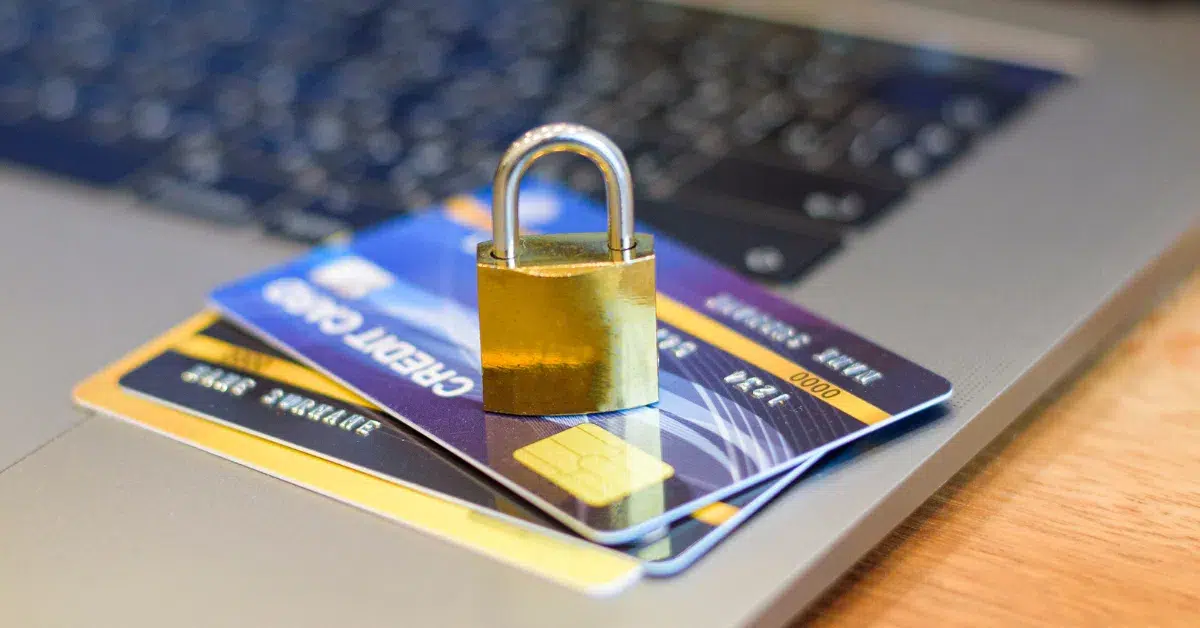Credit cards have become a significant part of our lives, making shopping and online transactions much easier. They offer convenience, safety, and security when making payments. Since credit cards are so convenient, many online and offline businesses now accept them as payment. It has allowed us to shop without having to carry cash. The use of credit cards is also becoming more common in everyday life. It is estimated that more than 2 billion people worldwide use credit cards.

Tips for Secure Credit Card Storage
As with the rise of online transactions and data breaches, sensitive details such as credit card info can effortlessly fall into the hands of hackers and cybercriminals. It can lead to unauthorized charges, identity theft, and other forms of financial fraud. To protect yourself and your financial information, it’s necessary to be familiar with the risks of storing credit card details and to take the required precautions to ensure that your information is kept safe. By following best practices for storing and securing your credit card details, you can reduce the risk of fraud and enjoy the many benefits that credit cards offer with peace of mind.
To keep your credit card information secure, storing it safely and responsibly is crucial. Let’s explore the dos and don’ts of storing credit card details, providing you with the knowledge and tools to protect your financial information. Whether you are a seasoned credit card user or merely initiating to explore the world of plastic, this guide will help you understand best practices for securing your credit card information.
Do’s:
Make Sure To Use An Encrypted Database:
The most important step to safely storing credit card information is to use an encrypted database. Ensure all of your data is encrypted and stored in a secure environment. It will ensure that only authorized personnel can access the information and that the data remains confidential.
Implement Multi-factor Authentication:
MFA is a safety approach that mandates users to provide two or more identifications before accessing the accounts. Typical forms of MFA include:
- A password and a security token.
- Fingerprint.
- One-time code sent to your phone or email in addition to your password.
So, if your credit card provider offers MFA, take advantage of it and protect your credit card information to the fullest.
Use A Password Manager:
A password administrator helps you securely store your passwords and other sensitive information. You can keep your credit card details in a password manager, which will encrypt your data, making it safe from prying eyes.
Use A Secure Browser:
When shopping online, use a secure browser such as Google Chrome, Mozilla Firefox, or Safari. These browsers will encrypt your information, ensuring that your credit card details are safe from hackers.
Keep Your Software Up-to-Date:
Regularly updating your browser, operating system, and other software can help protect your credit card information. Updates usually include security patches that protect against the latest threats.
Keep Your Devices Secure:
Your devices, such as your computer, phone, and tablet, can also access your credit card information. Secure these devices with passwords or fingerprints, and use anti-virus software to protect them.
Read More: How a Secured Credit Card Can Help You Establish Credit
Don’ts:
Store Credit Card Information on Public Computers:
Public computers in internet cafes or libraries may need the latest security measures to protect your credit card information. To be safe, avoid storing your credit card information on public computers.
Share Your Credit Card Information:
Sharing your credit card information with anyone, even if they are close to you, can be dangerous. Your credit card information should be kept private and only used by you. If someone asks for it, do not provide it; instead, look into other payment methods.
Store Credit Card Details On Paper:
Store card details on paper are not recommended as it is not secure and can easily be stolen or lost. You should use a secure online payment system that stores the details in an encrypted format. This way, your information is protected and cannot be accessed by anyone else.
Use Public Internet Services:
Public Wi-Fi Services are a popular target for hackers because it is not secure. If you must use public Wi-Fi, avoid entering your credit card information, and make sure to use a VPN to protect your data.
Store Credit Card Information on Unsecured Websites:
Before entering your credit card information on a website, ensure it is safe. Look for the padlock icon in the browser’s address bar you are using, and make sure the website starts with “https.”
Store Credit Card Information in an Unsecured Location:
It is essential to store your credit card information in a secure location, such as a password manager or a specific file on your computer. Do not store your credit card information in an unsecured location, such as a plain text file on your desktop or a sticky note on your bulletin board.
Same password for multiple accounts:
If you are using multiple accounts to store card details, use different passwords for each account. It will ensure that if one of your accounts is compromised, the hacker does not have access to all of your accounts.
Protect Your Financial Future: Secure Your Credit Card Information Today
Storing your credit card details safely and securely is essential in today’s digital age. You can protect yourself from the risk of credit card fraud by ensuring the safety of your credit card information when making online purchases. Follow the tips to stay safe and secure while using your credit cards and avoid becoming a victim of credit card fraud. Be vigilant and aware of credit card fraud and take necessary actions to safeguard yourself. Enjoy the convenience and benefits of using credit cards without worrying about the dangers of credit card fraud. So, implement these dos and don’ts in your daily life to keep your credit card information safe and secure.









